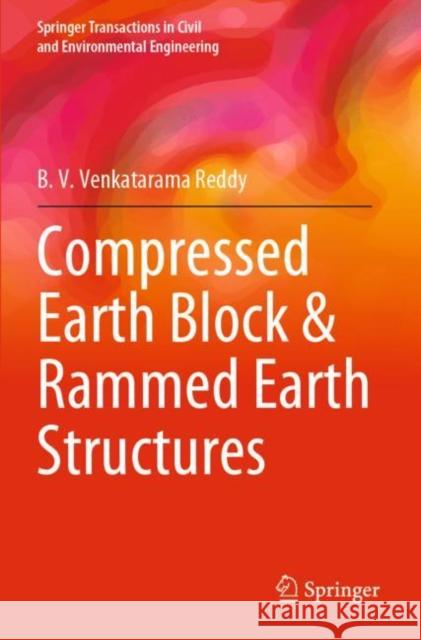Compressed Earth Block & Rammed Earth Structures » książka
Compressed Earth Block & Rammed Earth Structures
ISBN-13: 9789811678790 / Angielski / Miękka / 2023 / 465 str.
Compressed Earth Block & Rammed Earth Structures
ISBN-13: 9789811678790 / Angielski / Miękka / 2023 / 465 str.
(netto: 614,84 VAT: 5%)
Najniższa cena z 30 dni: 616,85 zł
ok. 22 dni roboczych
Bez gwarancji dostawy przed świętami
Darmowa dostawa!
The book focuses on low carbon construction materials such as stabilised compressed earth blocks (CEB’s) and rammed earth (RE). The content has been divided into four broad themes which includes an introduction to earth construction & stabilised earth, stabilised compressed earth blocks and masonry, stabilised rammed earth, and energy, carbon emissions, sustainability and case studies. It provides basic introduction to earthen materials and earthen structures, particularly with reference to the contemporary work on stabilised earth products for structural applications in buildings. The illustrations in the form of graphs, tables and photographs help the reader to get a grip over the CEB and RE construction. The book illustrates many case studies and examples of CEB and RE buildings. The knowledge on structural characteristics of CEB and RE especially with reference to the durability of such earthen products, and the structural design aspects is uniquely dealt. The embodied energy, embodied carbon, and the impact on construction sector touching upon sustainability of buildings is another unique feature of the book. This volume will be a useful guide for the research community, teachers, engineers, architects, building professionals, practicing engineers, students and individuals aspiring to build low carbon and sustainable buildings.
The book focuses on low carbon construction materials such as stabilised compressed earth blocks (CEB’s) and rammed earth (RE). The content has been divided into four broad themes which includes an introduction to earth construction & stabilised earth, stabilised compressed earth blocks and masonry, stabilised rammed earth, and energy, carbon emissions, sustainability and case studies. It provides basic introduction to earthen materials and earthen structures, particularly with reference to the contemporary work on stabilised earth products for structural applications in buildings. The illustrations in the form of graphs, tables and photographs help the reader to get a grip over the CEB and RE construction. The book illustrates many case studies and examples of CEB and RE buildings. The knowledge on structural characteristics of CEB and RE especially with reference to the durability of such earthen products, and the structural design aspects is uniquely dealt. The embodied energy, embodied carbon, and the impact on construction sector touching upon sustainability of buildings is another unique feature of the book. This volume will be a useful guide for the research community, teachers, engineers, architects, building professionals, practicing engineers, students and individuals aspiring to build low carbon and sustainable buildings.











